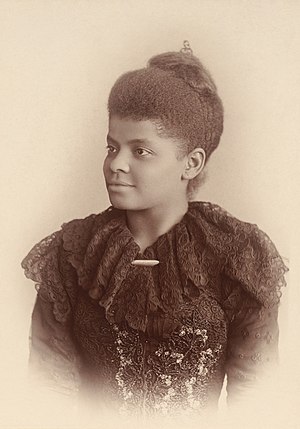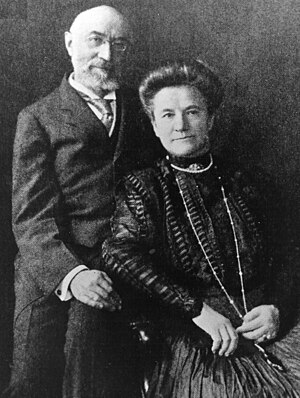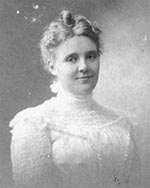Discover Your Roots
SIGN UPDiscover Your Roots
SIGN UPIda is a popular feminine given name of German origin, meaning "hardworking." It has ancient Germanic roots, derived from the element "id," which signifies "labor" or "work." Alternatively, it may be related to the Old Norse goddess Iðunn. The name is also an anglicization of the Irish feminine given name Íde. Ida has been a favored name in the Nordic countries, particularly in Scandinavia, where it is pronounced as Ee-da. Notable bearers of the name include civil rights leader Ida B. Wells and actress Ida Lupino. The name Ida was at the height of its popularity in the United States during the 1880s and remained among the top 100 most popular names for girls until 1930. It is currently a popular name in the Nordic countries and has variations like Iida in Finland. The name has also been associated with notable figures in history, literature, and mythology, making it a name of enduring significance.

Ida Bell Wells-Barnett (1862–1931) was an American investigative journalist, sociologist, educator, and an influential figure in the civil rights movement. She co-founded the NAACP and dedicated her career to fighting prejudice and advocating for African-American equality, particularly for women. Wells fearlessly documented and exposed the brutal reality of lynching in the United States, challenging the prevalent fallacies and analyzing its sociological roots. Born into slavery, she overcame personal tragedy and adversity to become a pioneering activist, journalist, and speaker. Wells faced threats and violence but continued her work in Chicago, where she married and raised a family while remaining dedicated to civil rights and women's suffrage causes. She was a prominent advocate for women's rights, establishing several significant women's organizations. Wells' impactful reporting on racial violence posthumously earned her a Pulitzer Prize special citation in 2020. Her legacy continues to inspire and educate, making her an iconic figure in American history.

Ida Lupino (4 February 1918 – 3 August 1995) was a multifaceted British actress, director, writer, and producer who left a lasting impact on the entertainment industry. Over her extensive 48-year career, Lupino appeared in 59 films and directed eight, making a significant mark in the United States, where she became a citizen in 1948. She is widely recognized as the most influential female filmmaker during the Hollywood studio system of the 1950s. Lupino co-wrote, co-produced, and directed several socially conscious films through her independent production company, pioneering themes that challenged social conventions, particularly focusing on women's struggles. Notable among her directed films are "The Hitch-Hiker," "Not Wanted," "Never Fear," "Outrage," "The Bigamist," and "The Trouble with Angels." As an actress, she starred in renowned films such as "The Adventures of Sherlock Holmes," "High Sierra," "The Sea Wolf," and "While the City Sleeps." Lupino also made her mark in television, directing over 100 episodes across various genres. Born into a theatrical family in London, Lupino's talent and passion for acting and writing emerged at a young age, eventually leading her to pursue a successful career in the entertainment industry. Throughout her career, Lupino's work as a director and actress broke new ground, leaving an indelible legacy in the world of film and television.

Rosalie Ida Straus, born on February 6, 1849, was a German-American homemaker and the wife of Isidor Straus, co-owner of Macy's department store. The couple tragically perished during the sinking of the Titanic. Born as Ida Blun in Worms, Germany, she immigrated to the United States in 1850 with her family. In 1871, she married Isidor Straus, and they had seven children. Ida's selfless act of refusing to leave her husband's side during the Titanic tragedy became widely celebrated. Her bravery and loyalty were honored in rabbis' speeches, articles, and a popular song. Although Isidor's body was recovered, Ida's was not. Memorials to the couple can be found in New York City, including a cenotaph at Woodlawn Cemetery and the Isidor and Ida Straus Memorial in Straus Park. Ida has been portrayed in various films and memorials, perpetuating her legacy. Her story continues to inspire and captivate audiences worldwide.

Ida Laura Pfeiffer (1797-1858) was an early female Austrian professional traveler, explorer, ethnographer, and travel writer. She journeyed an estimated 32,000 kilometers by land and 240,000 kilometers by sea through Southeast Asia, the Americas, the Middle East, and Africa, making two trips around the world between 1846 and 1855. Despite her accomplishments, she faced gender discrimination and was denied membership by the Royal Geographical Society in London until 1913. Born in Vienna to a wealthy textile manufacturer, Pfeiffer received an unconventional upbringing, preferring boys' clothing and sports. She married Dr. Mark Anton Pfeiffer and supported her family by giving drawing and music lessons and borrowing money from her brothers. Her financial situation improved slightly in 1831 after her mother's death, allowing her to continue her sons' education. At the age of 45, she fulfilled her childhood dream of traveling to foreign places. She traveled to Istanbul, Jerusalem, Scandinavia, and Iceland, documenting her experiences in bestselling journals translated into several languages. Pfeiffer's passion for exploration and her remarkable journeys have left a lasting legacy in the world of travel and literature.

Ida Sophia Scudder (December 9, 1870 – May 24, 1960) was a prominent American medical missionary in India, dedicated to improving the lives of Indian women. Her impactful work included battling bubonic plague, cholera, and leprosy while establishing the Christian Medical College & Hospital in Vellore, India in 1918. Ida's upbringing in India exposed her to the harsh realities of famine, poverty, and disease, which fueled her determination to pursue medicine after witnessing the tragic deaths of women in childbirth. Graduating from Cornell Medical College in 1899, she returned to India to establish medical facilities and a girls-only medical school, later expanding it into the renowned Vellore Christian Medical Center. Ida's legacy continues through the Ida Scudder School in Vellore, her inclusion as a Level Award namesake by the American Heritage Girls, and a commemorative stamp released in her honor. Her remarkable contributions have left an indelible mark on the field of medicine and the lives of countless individuals in India.
All images displayed on this page are sourced from Wikipedia or Wikimedia Commons.We use these images under their respective Creative Commons or public domain licenses. Wherever applicable, author attributions and license information are provided. If you believe an image is used incorrectly or outside its license terms, please contact us so that we can review and correct the issue.